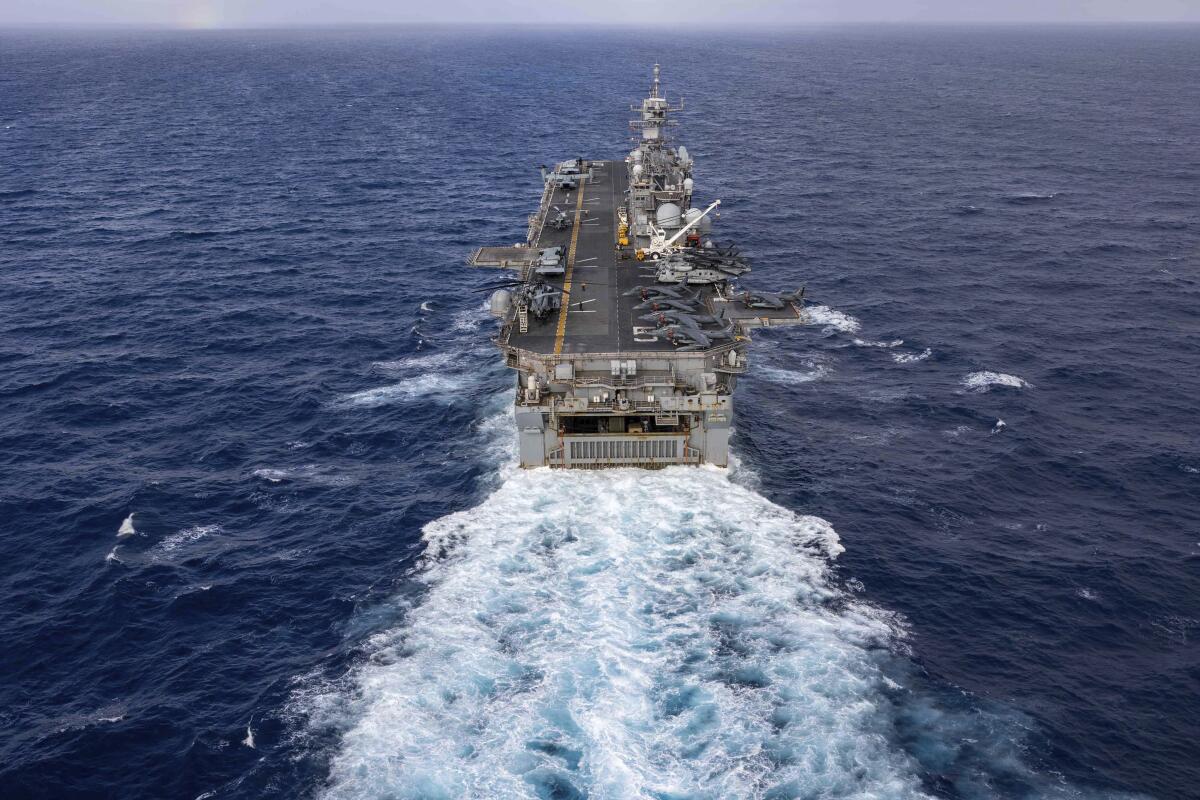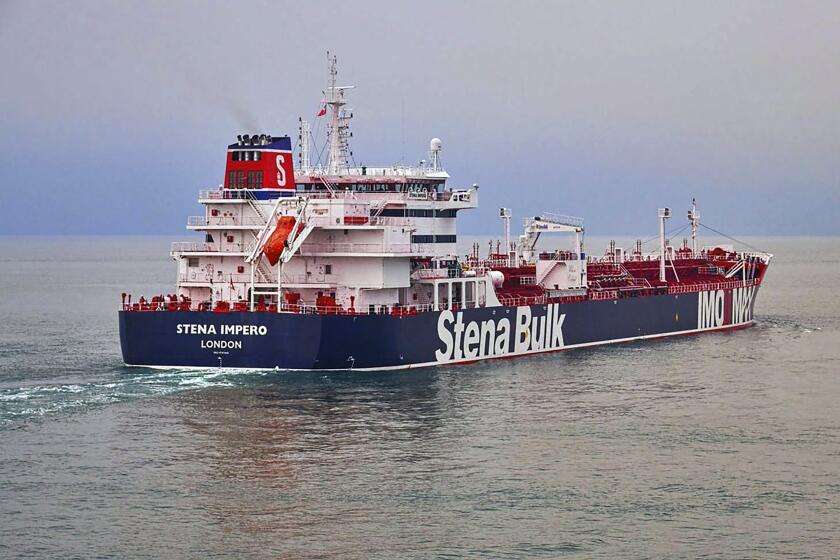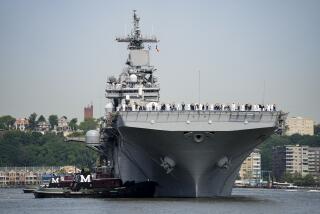U.S. may put armed troops on commercial ships in Strait of Hormuz to stop Iran seizures

- Share via
DUBAI — The U.S. military is considering putting armed personnel on commercial ships traveling through the Strait of Hormuz, in what would be an unheard-of action aimed at stopping Iran from seizing and harassing civilian vessels, four American officials told the Associated Press on Thursday.
Since 2019, Iran has seized a series of ships in the strait, the narrow mouth of the Persian Gulf, as part of its efforts to pressure the West over negotiations regarding its collapsed nuclear deal with world powers. Putting U.S. troops on commercial ships could further deter Iran from seizing vessels — or escalate tensions.
The contemplated move also would represent an extraordinary commitment in the Mideast by U.S. forces as the Pentagon tries to focus on Russia and China.
Washington didn’t even take the step during the so-called “Tanker War,” which culminated with the U.S. Navy and Iran fighting a one-day naval battle in 1988 that was the Navy’s largest since World War II.
While officials offered few details of the plan, it comes as thousands of Marines and sailors on the amphibious assault ship USS Bataan and the landing ship USS Carter Hall are on their way to the Persian Gulf. Those Marines and sailors could provide the backbone for any armed guard mission in the strait, through which 20% of the world’s crude oil passes.
Experts say what we’ve been witnessing is a game of tit-for-tat, in which Iran is flexing its muscles in the Strait of Hormuz in order to gain leverage in its disputes with the U.S.
Iran’s mission to the United Nations did not immediately respond to a request for comment from the AP about the U.S. proposal.
Four U.S. officials, who spoke on condition of anonymity to discuss the proposal, acknowledged its broad details. The officials emphasized that no final decision had been made and that discussions continue between U.S. military officials and Washington’s Arab allies in the region.
Officials said the Marines and Navy sailors would provide the security only at the request of the ships involved.
Earlier Thursday, Vice Adm. Brad Cooper, the head of the Navy’s Mideast-based 5th Fleet, met with the head of the Gulf Cooperation Council. The six-nation bloc includes Bahrain, Kuwait, Oman, Qatar, Saudi Arabia and the United Arab Emirates.
While a statement from the council about the meeting did not hint at the proposal, it did say that Cooper and officials discussed “strengthening GCC-U.S. cooperation and working with international and regional partners.”
The Bataan and Carter Hall left Norfolk, Va., on July 10 on a mission the Pentagon described as being “in response to recent attempts by Iran to threaten the free flow of commerce in the Strait of Hormuz and its surrounding waters.”
The Bataan passed through the Strait of Gibraltar into the Mediterranean Sea last week on its way to the Mideast.
Iran had vowed retaliation against Britain, which seized an Iranian tanker earlier this month
Already, the U.S. has sent A-10 Thunderbolt II warplanes, F-16 and F-35 fighters and the destroyer USS Thomas Hudner to the region over Iran’s actions at sea.
The deployment has captured Iran’s attention, with its chief diplomat telling neighboring nations that the region doesn’t need “foreigners” providing security.
On Wednesday, Iran’s paramilitary Islamic Revolutionary Guard launched a surprise military drill ondisputed islands in the Persian Gulf, with swarms of small fast boats, paratroopers and missile units taking part.
The renewed hostilities come as Iran now enriches uranium closer than ever to weapons-grade levels after the collapse of its 2015 nuclear deal.
International inspectors also believe it has enough enriched uranium for “several” nuclear bombs if it chose to build them. Iran maintains its program is for peaceful purposes, and U.S. intelligence agencies assess that Tehran is not pursuing an atomic bomb.
The U.S. also has pursued ships across the world believed to be carrying sanctioned Iranian oil.
Baldor reported from Washington.
More to Read
Sign up for Essential California
The most important California stories and recommendations in your inbox every morning.
You may occasionally receive promotional content from the Los Angeles Times.











